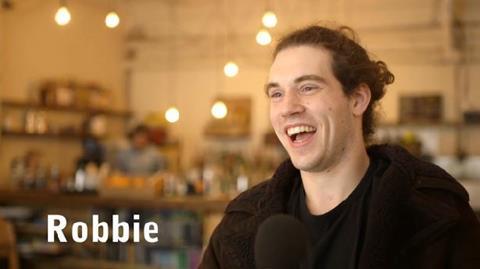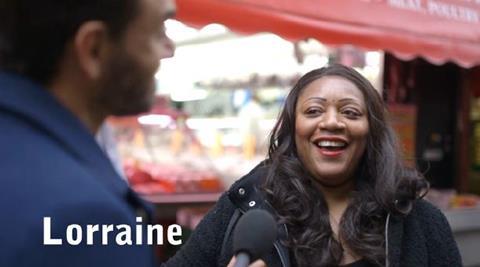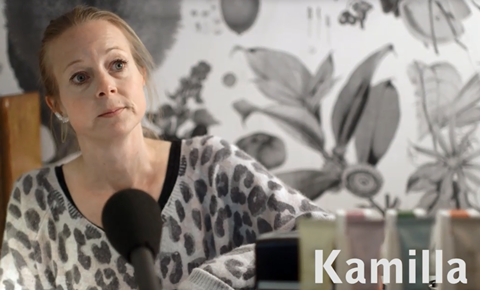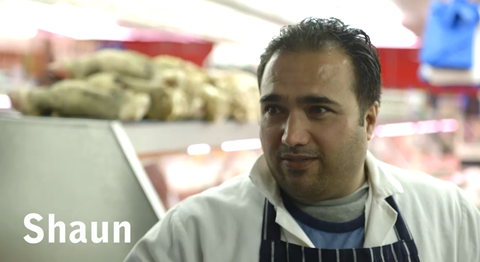In this instalment of the Live from London series, Londoners talk about people and things they love.
Seven ideas on how to use this video with your class
The following lesson ideas can be used alongside the video Live from London: What do you love? You can use these ideas on their own; you could group some of the activities together and choose to do them in whichever order you prefer. Each lesson idea has a recommended learner level. The transcript is attached under ‘Downloads’ at the bottom of this page.
Some of the ideas can be used for flipped lessons. In this scenario, students can do tasks and preparatory work at home or in the school independently from the teacher for the following lesson. This allows more time for communicative, teacher-led, or group-led tasks during class.
1. Listening comprehension
Level: Pre-intermediate (A2) to upper intermediate (B2)
Summary: Students watch the video and have to answer detailed questions.
Objective: to listen for detailed understanding
Instructions: Write the following questions on the board or create a handout.
- What does Robbie say his friends would do for him?
- What does Lorraine love?
- How long has Shaun worked for his boss?
- What does Kamilla love about the seaside?
- What coastline does Kamilla particularly love?
- Who does Natasha love the most?
- Where did Natasha meet her husband?
- How long has Natasha been married?
Ask students first to answer questions individually whilst watching the video. Place them in groups once the video ends, and check answers against your own.
2. Themed discussion
Level: Pre-intermediate (A2) to upper intermediate (B2)
Summary: Students use the two main questions from the video as a basis for a personalised discussion about love.
Objective: to practise question formation; to provide the opportunity for a class discussion
Instructions: Place your students into pairs or small groups for this activity. Before playing the video, tell your students that Luke, the interviewer in the video, asks two main questions. Ask your students to write down the two questions they hear (see below). Play the video.
What do you love most in the world?
Now, ask your students to come up with three more questions about ‘love’ and discuss all five questions in pairs or small groups.
3. Narrative tenses
Level: Intermediate (B1) to upper intermediate (B2)
Summary: Students identify examples of narrative tenses (the past simple, past continuous and past perfect) used in Natasha’s answer about how she met her husband.
Objective: to review narrative tenses; to listen for specific information
Instructions: Write the following question on the board: How did Natasha meet her husband?
Tell your students to listen out for Natasha’s anecdote in the video and answer the question.
Finally, create a handout from the transcript of Natasha’s anecdote.
OK! We met at Faro airport. We were going on a holiday. Well, he was going with his friends, and I was going with my friends, but it was a massive group. Basically, it’s called RJS, and … that morning I had over-packed my suitcase and me and Mum had to throw it down the stairs so, when I got to the airport, my bag was going around and around the conveyor belt cos I basically couldn’t lift it off, and this kind gentleman … came and he asked me if that was my bag and I said yes, and he helped me lift the bag off … and he took it to the coach for me and basically the rest is history. Fifteen years later we are now married!
Hand out the excerpt above and ask your students to find and underline at least one example of the past simple, past continuous and past perfect. Place your students back in pairs or small groups to share their answers.
You can extend the activity to this lesson here for a more detailed look at the form and use of different narrative tenses.
4. True or false
Level: Pre-Intermediate (A2) to intermediate (B1)
Summary: Students are given a list of true or false statements about the video content.
Objective: to listen for specific information
Flipped: Students can do this activity at home as well as prepare their own true and false statements for use in the following class. You could then add the ‘Interview task’ activity to be completed in the rest of the lesson.
Instructions: Look at the statements below. Some are true, and others are false. You can either write them on the board or create your own handout. You may wish to change the order of the statements to make it more challenging, or you may want to use the transcript to make your own true/false statements.
Statements and answers:
- Robbie loves his family most in the world [F] He loves his friends most
- Robbie has thousands of friends [F] He has a small group of friends he is very close to
- Robbie’s friends would do anything for him [T]
- One of the things Lorraine loves is having new experiences [T]
- Kamilla loves the seaside the most [T]
- The seaside inspires Kamilla’s clothing designs [F] She designs jewellery
- Kamilla’s favourite coastline is the North-east of Wales [F] South-East
- Natasha loves her husband most [T]
- Natasha met her husband in Portugal [T] They met at Faro airport (Faro is in Portugal)
- Sixteen years later Natasha and her husband are now married [F] fifteen years later
Additional idea: Ask your students to write their own true and false statements, to swap with a partner, about what they love.
5. Anecdote – How did you meet?
Level: Pre-intermediate (A2) to upper intermediate (B2)
Summary: Students choose someone in their life that they love to give a short presentation about to the class.
Flipped: Students could watch the video at home and prepare their anecdotes for the following day’s lesson.
Objective: to practise presentation skills and fluency
Instructions: Play the video to your students as a warmer. Explain to your students that they are going to prepare an anecdote about someone they love. You may wish to look at this lesson beforehand.
Talking about someone you love
Write the following questions on the board to help generate ideas for the anecdote:
- Who are they?
- How did you meet?
- How would you describe them? (character and appearance)
- What makes you love them so much?
- What special moments have you shared?
6. Vocabulary lesson

Level: Intermediate (B1) to upper intermediate (B2)
Summary: Students familiarize themselves with some of the low-frequency everyday English in the video.
Objectives: to build vocabulary; to practise speaking; to induce meaning from context
Instructions: As the videos are authentic, unscripted interviews, some of the language used by the interviewees is very natural and colloquial.
Write the words and expressions below on the board, or print out the worksheet, which can be found under ‘Related files’ at the bottom of this page.
- Close (friends) (adj)
- Inspiration (n)
- Coastline (n)
- To sweep (v)
- Impact (n)
- Massive (adj)
Place your students in small groups to come up with a definition for each word, and then show them the following Macmillan dictionary definitions to compare their answers.
- connected by shared interests and shared feelings such as love and respect
- a sudden feeling of enthusiasm or a new idea that helps you to do or create something
- the land along a coast, especially when seen from the sea or the air
- to clean a floor, the ground, or another surface using a broom (a brush with a long handle)
- an effect, or an influence
- very large or heavy
7. Improve the English!
Level: Pre-intermediate (A2) to upper intermediate (B2)
Summary: Students work in pairs to try and improve Shaun’s English (the non-native speaker in the video).
Objectives: to encourage error correction; to practise listening for specific information
Instructions: Explain to the students that there is a specific interviewee in the video who is a non-native speaker. Play the video. Now, write up the following exchange on the board from the transcript:
Shaun: I love it, I love it, London.
Luke: You love London? Why do you love London so much?
Shaun: Because it’s nice country, the people are good people, me I’m just happy, happy with my boss, 15 years working with him, we joke, everything, laugh, everything, I just live 15 years in Brixton Market.
Ask your students to work in pairs, try to correct any mistakes in Shaun’s answers, and focus on how they could improve the coherence of his speech. Multiple possible answers exist, so monitor closely, putting good correction examples on the board to share with the class.
Downloads
Click link to download and view these filesLive from London: What do you love? — Worksheet
Word, Size 0.14 mbLive from London: What do you love? — Video
Video, Size 47.22 mbLive from London: What do you love? — Transcript
Word, Size 0.14 mb
Topics
- Adults
- adults
- advanced
- B1
- B1
- B2
- B2
- British English
- C1
- C1
- C2
- Culture
- Food
- Geography & Places
- Integrated Skills
- Intermediate
- intermediate
- Leisure
- Listening
- live from
- live from london
- london
- love
- Mixed Ability
- People & Individuals
- Pre-Intermediate
- Teenagers
- teenagers
- Travel
- Up to 45 mins
- Up to 60 mins
- Upper-Intermediate
- upper-intermediate
- video
- Video
Live from … authentic video lessons
- 1
- 2
- 3
- 4
- 5
- 6
- 7
- 8
- 9
- 10
- 11
 Currently reading
Currently readingLive from London: What Do You Love?
- 12
- 13
- 14
- 15

















No comments yet